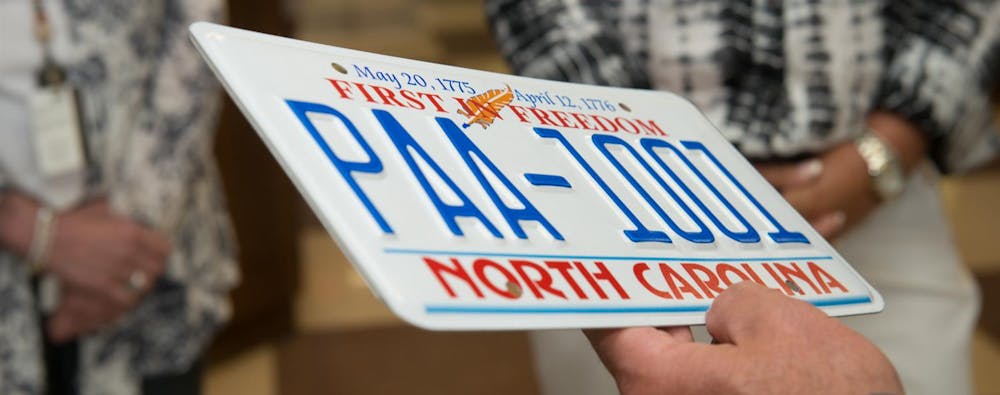The U.S. Supreme Court declined to review or comment on a 2021 North Carolina Department of Transportation ban on issuing or renewing specialty license plates with the Confederate flag or any Confederate flag in June.
According to the North Carolina Division of Motor Vehicles, North Carolina offers three standard plates and over 200 specialty license plates, representing more than 100 civic clubs and interest groups.
However, in 2021 the North Carolina Department of Transportation sent the Sons of Confederate Veterans a letter stating it would “no longer issue or renew specialty license plates bearing the Confederate battle flag or any variation of that flag” since the plates “have the potential to offend those who view them,” according to PBS.
The North Carolina chapter of the Sons of Confederate Veterans in turn sued, claiming the state’s decision violated its free speech right under the Constitution’s First Amendment and state law
governing specialty license plates. However, a lower court dismissed the case, and a federal appeals court agreed with that decision in 2022. The Supreme Court declined to review or comment on the decision.
Elon Law professor and dean emeritus Luke Bierman said though the North Carolina chapter of the Sons of Confederate Veterans said there was a free speech violation, a due process violation and an equal protection violation, but the Western District of North Carolina found there was no violation of any of the constitutional provisions the group claimed.
In addition, Bierman explained in 2015 during a similar case — Walker v. Texas Division, Sons of Confederate Veterans, Inc. — the U.S. Supreme Court ruled in favor of the DMV in question.
“They’re in a different federal court, but the case went to the Supreme Court, which decided that the Texas motor vehicle department was within its rights because by maintaining control over the license plates, this was considered government speech, not a private person's speech,” Bierman said. “There was no violation because the government can make those kinds of assessments and individual or a group speech rights were not being affected.”
Bierman’s colleague Enrique Armijo, Elon Law professor who specializes in free speech, said he agreed.
“In a First Amendment case involving the ban on confederate flag license plates in Texas, the Supreme Court has said that license plates are government speech, not the speech of the driver or group that wants to sponsor a specialized plate,” Armijo said. “So, it does not violate the Constitution for a state to decide not to permit a specialty plate because of the images on that plate.”
Bierman said he would be surprised if the Confederate flag is ever banned beyond just government property.
“It would be pretty odd for the Supreme Court to say government officials could ban that kind of expression by a person,” Bierman said. “They might be able to regulate it. They can't ban it. But someone just couldn't put a flag out in a way that might obstruct traffic over a street, for example.”
Political science professor Thomas Kerr said the political demographics of North Carolina are changing.
“I think we're turning more purple just via demographics, like [the] Mecklenburg area, the Raleigh-Durham area, even Greensboro, Burlington — all of that is growing quite rapidly in population, which tends to be a little bit more on the blue side,” Kerr said. “Based upon some of those structural things that are kind of tilted towards the Republicans, based on congressional mapping and things of that nature, but population wise, we're definitely seeing a trend towards purple.”
In its lawsuit, the North Carolina chapter of the Sons of Confederate Veterans argued the Confederate flag is a symbol of their heritage rather than one of racism.
Kerr said he disagrees.
“You see those bumper stickers, ‘Heritage not hate,’” Kerr said, “For me personally it is such a loaded symbol, and it is known to have such connotations that it is inherently racist.”


